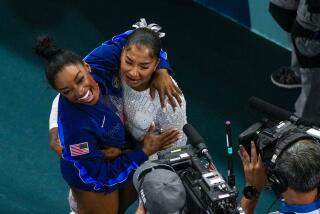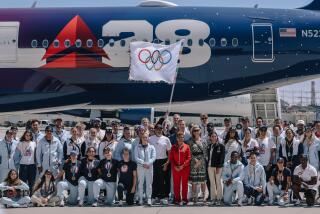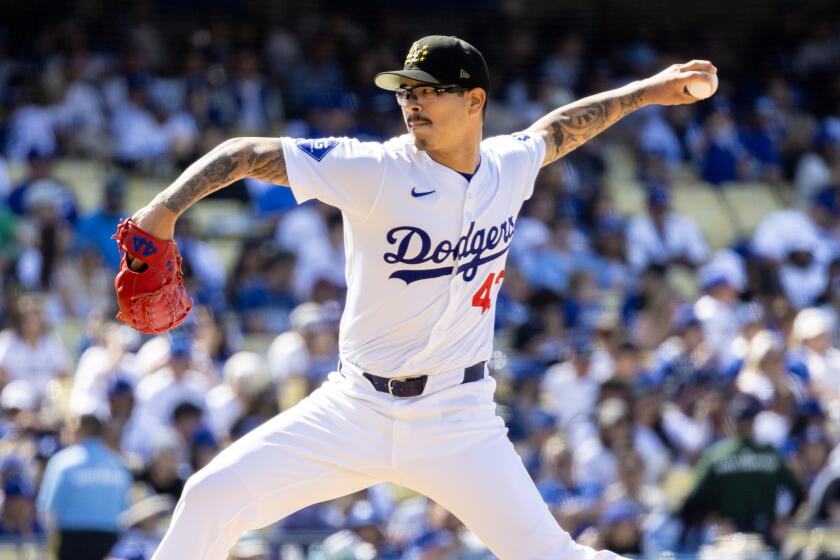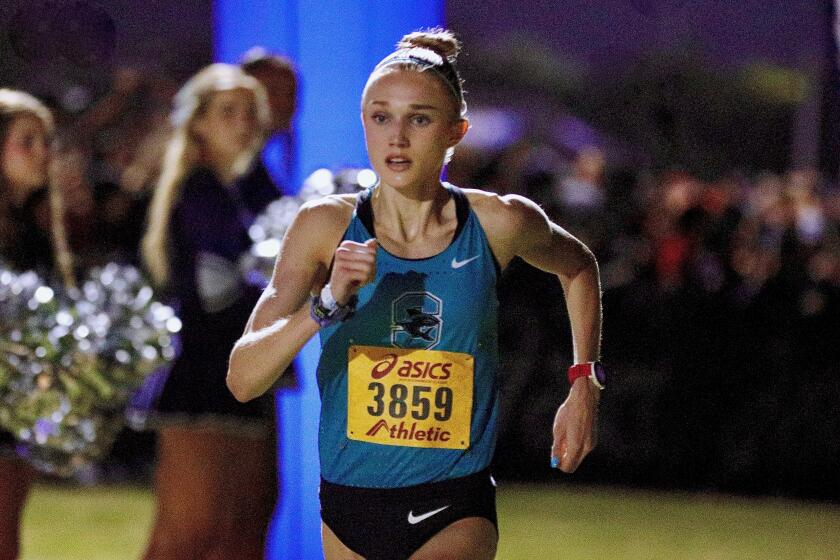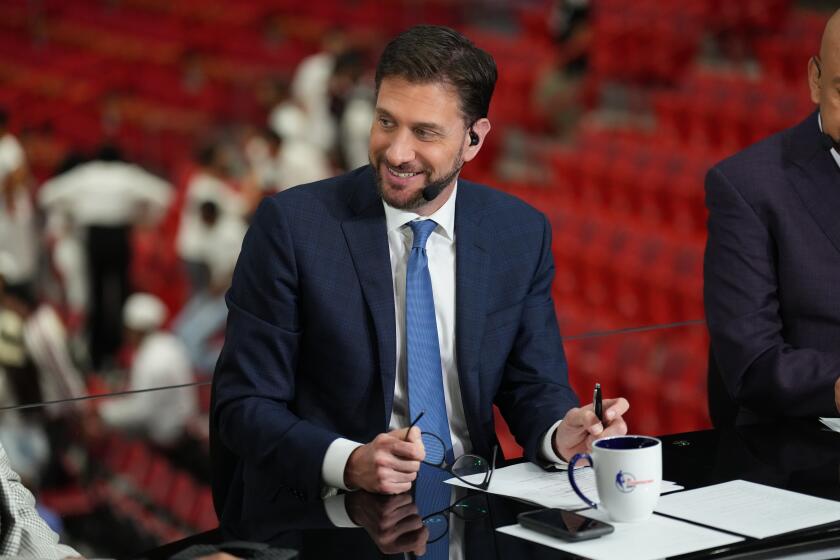Thursday is key moment for L.A.’s 2024 Olympic bid
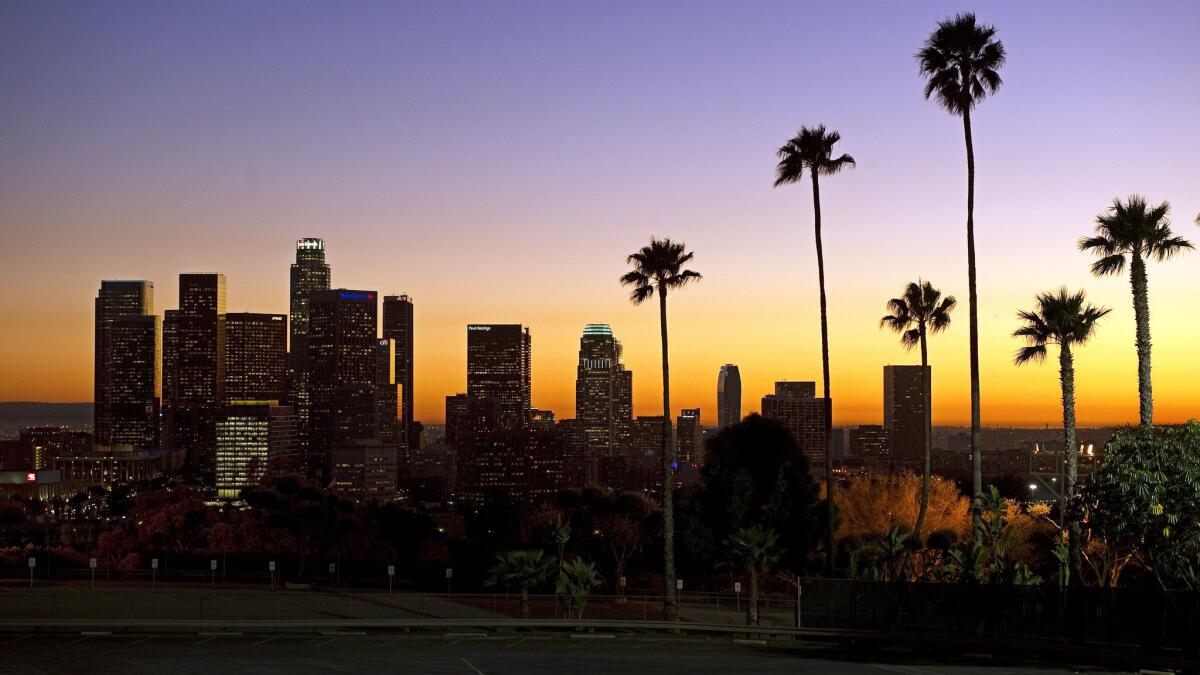
The fate of a two-year campaign to bring the Olympics back to Los Angeles for a third time could be decided on Thursday at — of all places — Denver International Airport.
U.S. Olympic Committee board members from across the country will gather there to continue deliberating over an American bid for the 2024 Summer Games.
The USOC is expected to reach a decision by afternoon, choosing among Los Angeles and three other finalists: Boston, San Francisco and Washington.
The winner automatically will become a favorite when the International Olympic Committee selects a host in the summer of 2017.
“We’re so lucky to have four great cities,” USOC Chief Executive Scott Blackmun said after hearing presentations from each candidate last month. “They all have a lot of really compelling strengths.”
As the verdict draws near, a clearer picture of Los Angeles’ bid has emerged. The proposal has some familiar elements.
A refurbished Coliseum would host track and field events, as well as the opening and closing ceremonies. The stadium served as a centerpiece for the 1932 and 1984 Summer Games.
Dodger Stadium would host baseball if, as expected, that sport returns to the Olympics. Soccer would be played at the Rose Bowl.
While Los Angeles appears to be an economically sensible choice, city officials know their biggest obstacle to winning the USOC competition is a sense of been-there, done-that. So they have placed about 80% of the events at venues that did not exist in 1984 or have been significantly revamped since then.
The San Fernando Valley, which went unrepresented during the 1984 Olympics, would get several sports.
The Games would be divided into several additional clusters, with a downtown grouping that features Staples Center for gymnastics and basketball, Nokia Theatre for martial arts and USC’s Galen Center for yet-to-be-determined sports.
A proposed soccer stadium beside the Coliseum would be temporarily converted into a swimming venue.
An expanded Convention Center would house several sports, much like the popular ExCeL Centre at the 2012 London Olympics.
Bill Hanway, an architect with AECOM, was closely involved with those Games and is now working with Mayor Eric Garcetti and sports executive Casey Wasserman on Los Angeles’ bid.
The team has consulted with national officials on numerous occasions over the past year.
“Casey Wasserman and I have enjoyed meeting with the USOC board and working with the talented USOC team to explore how we can present the strongest possible bid for our nation,” Garcetti said in a statement.
A proposed Westside cluster would include several venues at UCLA, including the revamped Pauley Pavilion, Drake Stadium and Los Angeles Tennis Center, which would be used for something other than tennis.
Beach volleyball, open-water swimming and perhaps the triathlon would take place along the shore.
StubHub Center in Carson would anchor yet another cluster. The Galaxy’s home field could host rugby or field hockey and there is an adjacent tennis stadium. An indoor velodrome at the site would need relatively minor alterations to meet Olympic standards.
“Compact” has become a catch phrase in the Olympic movement — Boston, for instance, is proposing to hold events within walking distance of each other.
In Southern California, compactness is more often measured by odometer. The major event clusters would fall within 30 driving minutes of downtown, depending on traffic, and would be connected by public transit.
The need for proximity leaves Orange County and Honda Center out of the mix at this point, with perhaps the southernmost event being sailing outside Los Angeles Harbor.
Heading into Thursday’s meeting, San Francisco is considered the other co-favorite in the race.
USOC Chairman Larry Probst spoke of the city’s “magical appeal” in a recent interview with the Chicago Tribune. That mystique figures to resonate with IOC members around the world.
According to a map published by the San Francisco 2024 bid committee, venues would be spread throughout the Bay Area, with a temporary stadium erected on the waterfront. Landmarks such as the Golden Gate Bridge and Coit Tower would serve as backdrops to events, a strategy London used to its advantage in 2012.
“We’re feeling good,” said Nathan Ballard, a bid committee spokesman. “All of our major pieces are in place.”
A Bay Area labor union executive and a former politician opposed hosting the Olympics in a recent op-ed piece. Ballard said that though the committee members “take any criticism to heart,” he still believes the bid has widespread public support.
In Boston, the well-organized No Boston Olympics group has waged a vocal campaign. But the bid committee seems to have impressed USOC board members by proposing the compact footprint that makes use of university and college venues.
Washington has been considered a dark horse in the race, if only because the capital’s politics might not appeal to IOC members in other countries.
A U.S. candidate would have until early 2016 to submit an application file and guarantee letters. Then comes a year of campaigning to impress IOC members.
“We want to think about this as America’s bid,” Probst said. “Hopefully we can energize the country and get the country engaged with the Olympic movement.”
Follow David Wharton on Twitter @LATimesWharton
More to Read
Go beyond the scoreboard
Get the latest on L.A.'s teams in the daily Sports Report newsletter.
You may occasionally receive promotional content from the Los Angeles Times.


